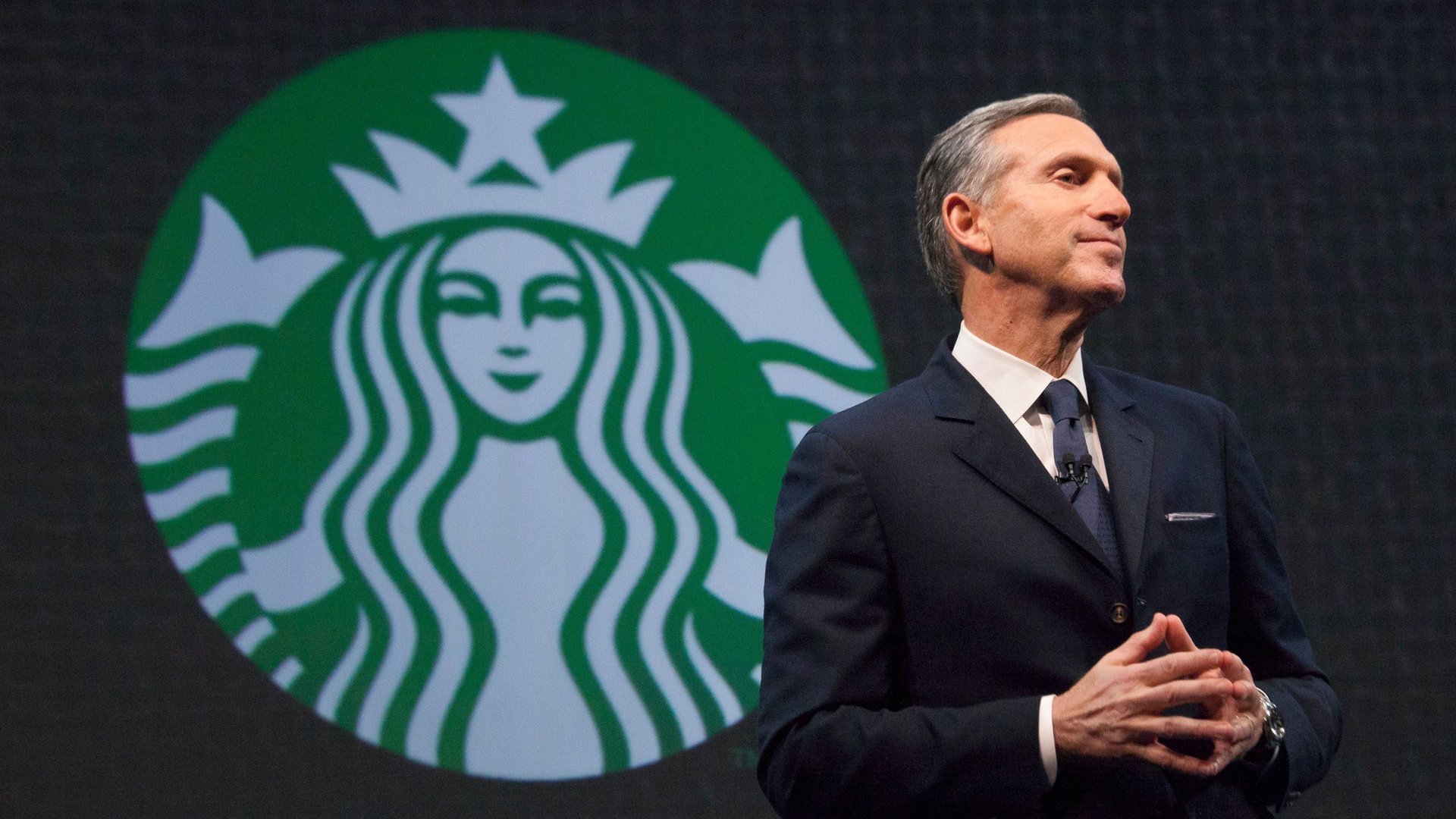The man who made Starbucks look progressive is not
The man who made the Frappuccino ubiquitous the world over has his eyes on the highest public office in America. Whether people have the appetite for his ambitions remains a question.


The man who made the Frappuccino ubiquitous the world over has his eyes on the highest public office in America. Whether people have the appetite for his ambitions remains a question.
Even those with a tepid interest in Howard Schultz’s presidential aspirations point out that Starbucks, the company he lifted to global prominence, has shown a wide progressive streak, especially when measured against comparable behemoths such as McDonald’s.
Starbucks, in many ways, itself offers a microcosm of the US economy and—sometimes—a view of how to do right by workers. Part-timers get health insurance, new parents can take advantage of a leave policy that’s uncommon elsewhere in the food industry, employees get paid sick leave, and it offers most of its workers—about 140,000 of its 191,000 in the US—access to Arizona State University’s online program to earn a bachelor’s degree for free.
Yet Schultz, a multi-billionaire touting a new book as he dangles the possibility of a White House bid, has already signaled that his taste for progressive policies only goes so far. His stance has not been that surprising to consumers, many of whom are not Starbucks’ biggest fans.
This week he took aim at one of the policies espoused by the wave of newly elected Democratic political firebrands, including Alexandria Ocasio-Cortez. In an interview on CNBC, Schultz dismissed the idea of a 70% marginal tax rate that would impact the super-wealthy—people like him—by saying, “I don’t think we want a 70% income tax in America.”
The insinuation was that American coffee drinkers and others just aren’t ready to stomach policies that ask the wealthy to pay that much more into the larger system. According to polls, though, his assumption is off the mark. A Hill-HarrisX survey found 59% of people in the US support that proposal. And a Fox News poll found 70% of people think taxes on the rich should absolutely be hiked.
Realizing his own views are incongruent with the values of many people—mostly Democrats—Schultz says if he runs, it would be as an independent. That, of course, has set off waves of criticism from left and center, from those who argue that such a candidacy would only weaken the effort to sweep Donald Trump out of office.
Former New York City mayor Michael Bloomberg, who had looked at running for president as an independent in 2016, said this week that an independent bid in 2020 would “split the anti-Trump vote and end up re-electing the president.” He cited it as a reason he wasn’t running himself.
Asked on CBS News’ 60 Minutes whether he feared his potential candidacy would siphon Democratic votes and strengthen Trump’s chance of being re-elected, Schultz skirted the questions and served up a word-salad non-answer.
“I want to see the American people win, I want to see America win,” he said. “I don’t care if you’re a Democrat, Independent, Libertarian, Republican. Bring me your ideas. And I will be an independent person, who will embrace those ideas. Because I am not, in any way, in bed with a party.”
And so another plutocrat mulls his opportunity to sit behind the Resolute Desk. Another character in an unfolding Boschian nightmare whose political aspirations are tethered to the general idea that if you can successfully run a business, then you’ve got a likely chance of success on an even bigger stage.
It’s a fun fantasy for a latte king, even if its unclear whether he’s the one to face the most challenging global issues of the day head-on.